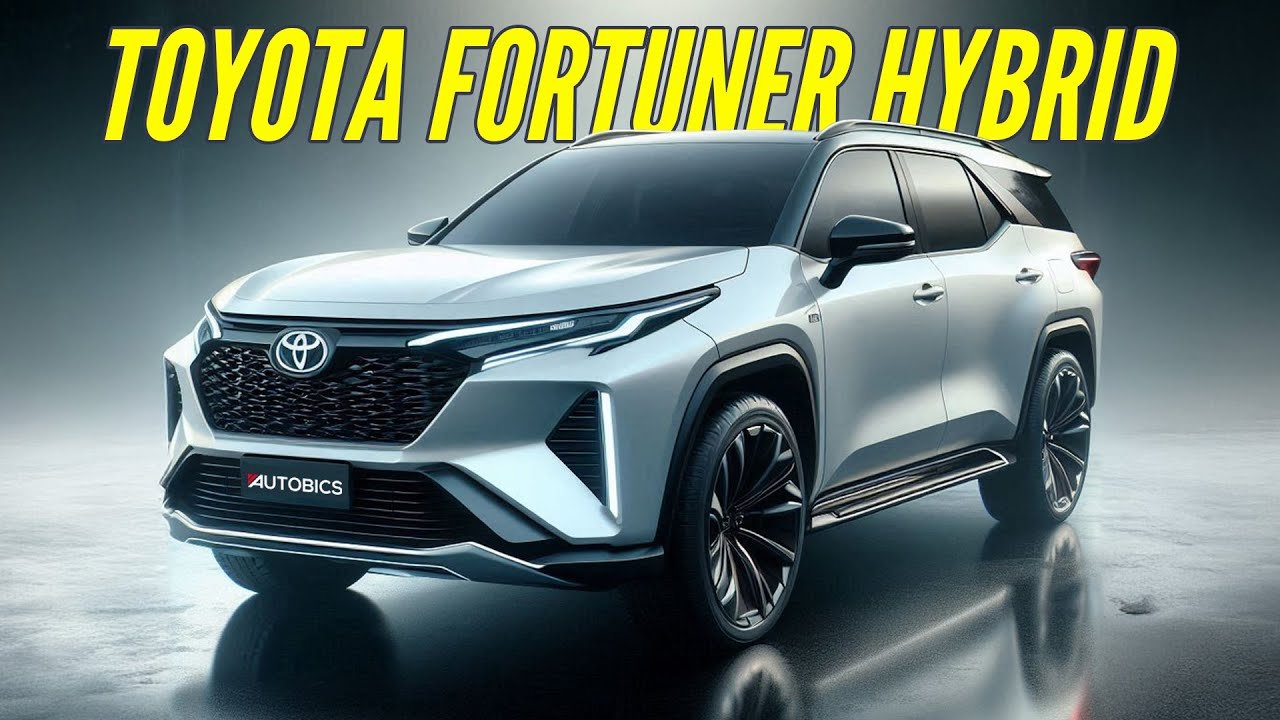The Toyota Fortuner has ruled the premium SUV segment in India for years with its bold design, rugged performance, and unbeatable road presence. But the automotive world is changing fast, and Toyota has introduced a mild-hybrid version of the Fortuner in markets like South Africa.
While Toyota hasn’t officially confirmed its India launch, the Fortuner Hybrid is widely expected to arrive soon. At first glance, it looks almost identical to the regular Fortuner Legender. However, the hybrid SUV hides some smart upgrades under the hood and inside the cabin.
Let’s explore the five major differences between the Toyota Fortuner Hybrid and the regular diesel Fortuner.
1. Mild-Hybrid Technology with ISG
The biggest difference is under the bonnet. The Fortuner Hybrid uses the same 2.8-litre diesel engine but adds a 48V mild-hybrid system with an Integrated Starter Generator (ISG).
- Combined Power Output: 201 bhp & 500 Nm
- Hybrid Assist Output: 16 bhp & 42 Nm
This ISG system helps during quick acceleration, makes stop-start smoother, and adds extra punch for overtaking. It doesn’t run on electric power alone but enhances performance and efficiency.
👉 Think of it as a diesel engine with an intelligent electric boost.
2. Better Fuel Efficiency
Fuel economy is where the hybrid makes a difference. Toyota claims the hybrid Fortuner is about 5% more efficient than the standard diesel version.
This might not sound huge, but for a large SUV like the Fortuner, even a small percentage translates to noticeable fuel savings—especially during city commutes with heavy traffic and frequent braking.
3. Quieter & Smoother Drive (Improved NVH Levels)
The hybrid system isn’t just about mileage—it also makes the SUV more refined.
- The ISG reduces vibrations during idle.
- Engine restarts in traffic are quieter.
- Gearshifts feel smoother with extra torque assist.
In short, the NVH (Noise, Vibration, Harshness) levels are better than the regular diesel Fortuner, giving you a calmer and more premium driving experience.
4. Upgraded Instrument Cluster & Safety Features
Inside, the cabin design is familiar, but the instrument cluster gets hybrid-specific graphics, including:
- Battery charge level
- Power flow meter
- Regeneration alerts
Additionally, the South Africa-spec model comes with Toyota Safety Sense (ADAS) features and a 360-degree camera. If Toyota brings these to India, it could be a game-changer for Fortuner lovers.
5. Weight & Driving Performance
Adding a battery pack and ISG increases the SUV’s weight by around 60–80 kg. But surprisingly, this doesn’t slow it down.
In fact, the hybrid system makes city driving smoother and more relaxed. Power delivery feels more linear, and acceleration is more effortless compared to the regular diesel version.
Quick Comparison: Toyota Fortuner Hybrid vs Regular Fortuner
| Feature | Fortuner Diesel | Fortuner Hybrid (MHEV) |
|---|---|---|
| Engine | 2.8L Diesel | 2.8L Diesel + 48V MHEV |
| Power & Torque | 201 bhp / 500 Nm | 201 bhp / 500 Nm (+16 bhp, +42 Nm assist) |
| Fuel Efficiency | Standard | ~5% Better |
| Refinement (NVH) | Good | Quieter & smoother |
| Instrument Cluster | Standard | Hybrid graphics + ADAS |
| Weight | Lighter | 60–80 kg heavier |
FAQs on Toyota Fortuner Hybrid
1. Is the Toyota Fortuner Hybrid launching in India?
Not yet. Toyota has launched it in South Africa, but industry experts expect it to arrive in India soon.
2. What is the mileage of the Fortuner Hybrid?
Official mileage figures are not revealed, but Toyota says it is around 5% more fuel-efficient than the standard diesel Fortuner.
3. Does the Fortuner Hybrid use petrol or diesel?
It still uses the 2.8-litre diesel engine, but with a 48V mild-hybrid system for better efficiency and refinement.
4. How is the Fortuner Hybrid different to drive?
It feels smoother, quieter, and more responsive. The hybrid system assists during acceleration and reduces engine strain in traffic.
5. Is the Fortuner Hybrid worth waiting for?
Yes, if you want a more refined, slightly more efficient, and tech-packed version of the Fortuner. For long-term buyers, the hybrid could offer better value.
Final Thoughts
The Toyota Fortuner Hybrid is more than just an eco-friendly version of the popular SUV. It promises better fuel efficiency, smoother performance, quieter drives, and added features.
If Toyota brings it to India, it could easily strengthen the Fortuner’s dominance in the premium SUV segment—while also appealing to buyers who want a modern, greener alternative.

